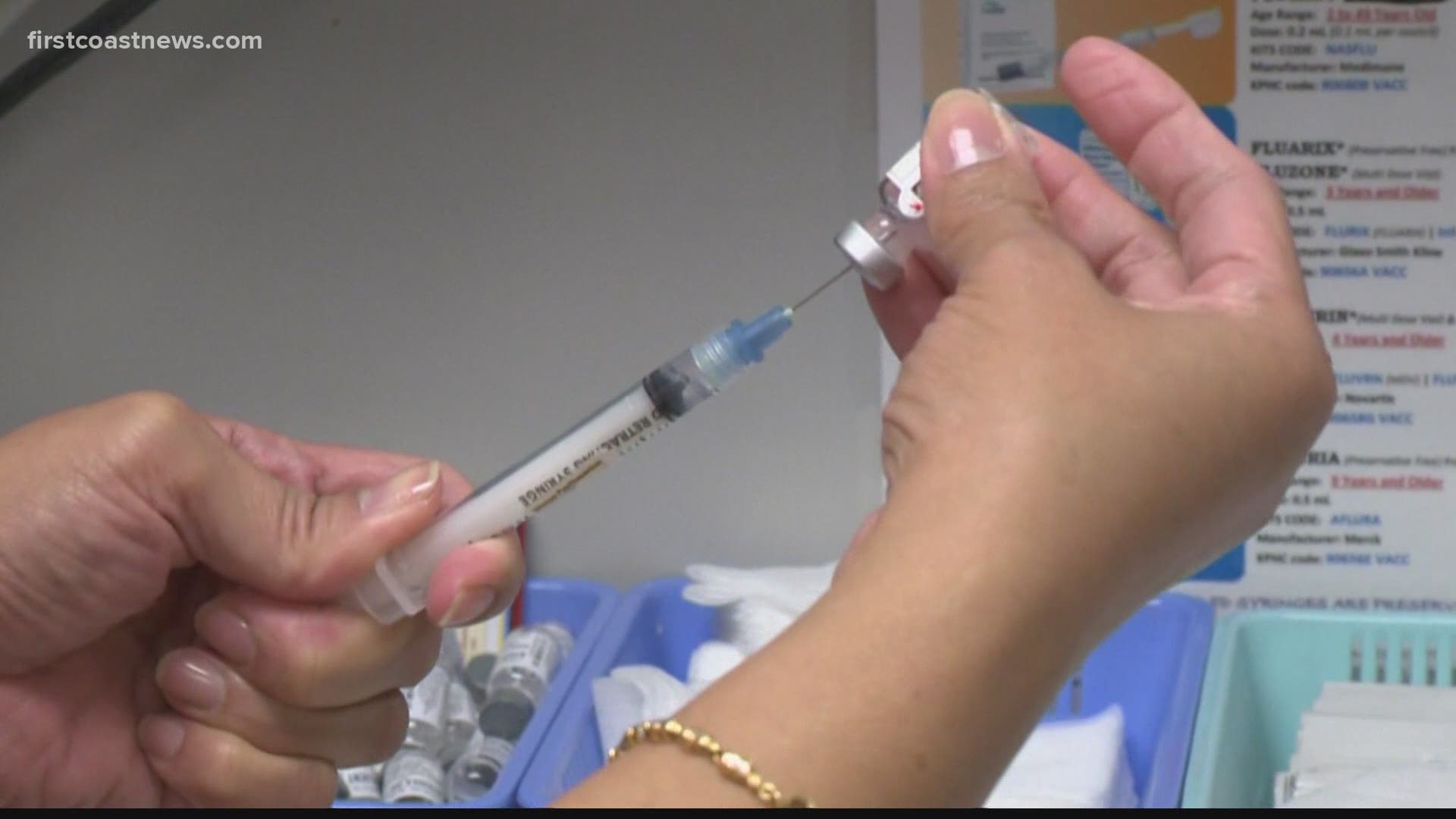JACKSONVILLE, Fla. — Have you been delaying annual checkups during COVID-19?
We know it can be unsettling going to a hospital or doctor’s office in the middle of a pandemic when you are trying to avoid contact, but there are certain visits doctors say you shouldn’t avoid.
Specifically, your child’s annual checkup and vaccinations.
The CDC has reported a steady and drastic decline in the number of children vaccinated for things like measles, mumps and rubella. We first told you back in May that families were avoiding the doctor's office and consequentially not getting their children vaccinated.
UF Health Jacksonville immunologist and pediatric infectious disease specialist Dr. Mobeen Rathore says the pandemic should not stop you from doing this.
"For many of the vaccine-preventable diseases, you need a certain percent, a threshold of immunization of the community to provide herd immunity so you can protect everybody," Rathore explains. "We have fallen way below that for measles, mumps, and rubella.”
Rathore explains that this is not just a problem in other areas around the county, but it is also a local problem in Duval County.
“As a result, not only are the children that are not immunized are at risk for getting those infections, in addition, we have lost the benefit of herd immunity.”
Herd immunity is when a population builds a resistance to the spread of contagious disease because enough people are immune, especially through vaccination. Rathore says for MMR, 95 percent of the population or higher should be vaccinated to gain herd immunity.
Since the start of the pandemic, he says we have fallen significantly below that.
The CDC says children age 12 months to 15 months get their first dose and the second dose is given usually 4 to 6 years old. Children can get the second dose earlier as long as it is at least 28 days after the first.
The measles virus is able to spread before symptoms appear. Symptoms include a high fever, cough, runny nose, red watery eyes and a rash. The CDC says measles can be dangerous, especially for young children and babies.
“Go and get your vaccines so your child can be up to date on your vaccines to protect them from these terrible diseases," Rathore said. "You know we already have COVID-19 going on, we are at a risk of having another outbreak of measles if enough children in the community are not immunized.”
This is a wake-up call to parents. Rathore says call your pediatrician today. Schedule that appointment to get your child caught up on their vaccines.

